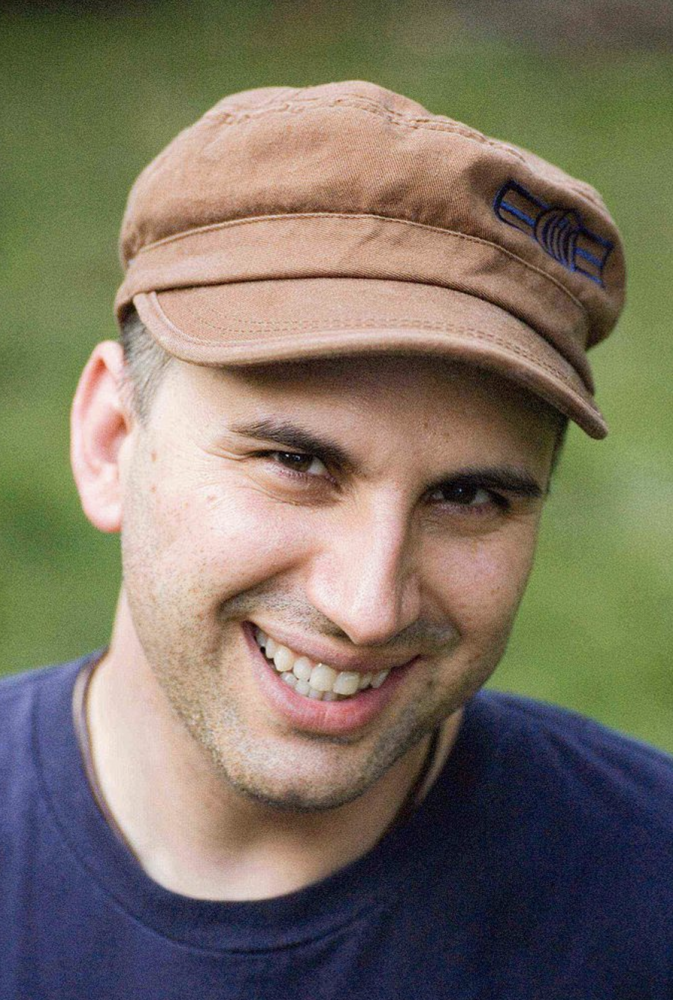Peterson Toscano Uses Comedy to Tackle Societal Issues
Comedian, LGBTQ+ activist and environmental rights advocate Peterson Toscano sat down with WSN staff to discuss his upcoming plans and routines for his lecture at NYU. His lecture will be at the Barasch Theater on Oct. 11 at 6:30pm.
October 16, 2017
Comedian, LGBTQ and environmental rights advocate Peterson Toscano chatted with WSN contributing writer Amelia McBain to discuss his lecture and comedic routine at NYU. The lecture occurred on Oct. 11 at the Jeffrey S. Gould Welcome Center for NYU’s Office of Sustainability’s semi-annual speaker series.
Washington Square News: What is the process like of taking something serious and starting a conversation about it in a way that’s humorous?
Peterson Toscano: I think part of the process is being vulnerable. I need to first find the humor in myself. Take my conversion therapy experience for example. It is traumatic, but it’s also ridiculous. While it’s easy to make fun of the people who are running these programs, I had to look at myself and find what was ridiculous in myself. The other part of it is the commitment to be non violent. Humor can be violent, right? You can really attack people with humor. So I tried to create characters that I like, that I have an affection for, and I never try to hurt someone with my humor. Humor can be dismissive, and I’m not trying to make light of issues; I’m trying to shed light on them. Also, humor is one of those things where everyone has their own tastes. That’s something else I have to be aware of — it doesn’t work for everybody. There will be people who will walk away, who even think it’s too serious of an issue and that I shouldn’t use comedy. To which I say, well, maybe you shouldn’t come to my show. Go to a lecture, you might like that better.
WSN: Why do you think an LGBTQ response to climate change is important?
PT: The environmental movement is a very white, middle class, heteronormative movement. There are a lot of people who feel left out. A queer response to climate change can really challenge that and make us ask, “What other reasons are there to act?” I think that’s really important because, as they say in the recovery community, the definition of insanity is doing the same thing over and over again and expecting a different outcome. The playbook of the environmental movement has been similar since the ’70s and it’s time to question the talking points. Things are changing, there’s more talk about environmental justice, environmental racism and climate justice. More people of color are getting involved in the discussion and it’s shifting the way that people look at the environment. With climate change, we’re all on the same boat together, but we’re not all on the same deck. We know people have different experiences of the world. I think it’s also important from a queer family values perspective that we’re affected by climate change dif- ferently than other people. LGBTQ seniors, who are often more isolated than other seniors, may not have people checking in on them during a heat wave or hurricane. LGBTQ homeless youth, who may not feel welcome at shelters, need somewhere to go during big storms. We need to make sure we will survive these storms and that our people have healthy, strong lives.
WSN: Who inspires you? Which comedians, activists and other people do you look up to?
PT: I have been very influenced in my comedy by Mad Magazine, by Joan Rivers, who was fearless in taking on really serious issues through comedy, by the marginalized people who’ve done comedy through the years like John Leguizamo, Lily Tomlin and Whoopi Goldberg. They all did one-person shows where they took on multiple characters because I think as a marginalized person, you’re often alone so you have to move in and out of all sorts of worlds and speak in different languages. That definitely has inspired me.
WSN: What advice do you have for NYU students that may want to get involved in queer groups, environmental justice or comedy? Or, like you, all three?
PT: I remember when I came out in ‘99, it was like someone handed me a folder and said, “Now that you’re gay, this is the music you like, these are the clothes you wear, these are your politics.” I felt that I needed to reject that and figure it out for myself. I think that we’re seeing this more and more, that people are being queer in the way that they need to be queer. With that, what- ever you do, wherever you do your activism — whether it’s for queer or environmental rights or something completely different — come as your whole queer self and be your own damn queer.
WSN: Anything else you desperately need the public to know?
PT: We live in an extraordinary time. It sort of reminds me of the HIV/AIDS crisis, when suddenly people are called on to do things they never imagined they would do and felt completely inadequate to do. The public is panicked and hostile, there are a lot of hate crimes, just like during the crisis. It was a dire period of time and activists were young people who had no experience. When we look at their accomplishments, they were pretty stunning, and it gives me a model for what we can do now.
WSN: Wow. I’m very moved by that.
PT: We can learn from our ancestors. This is not our first rodeo. We can also learn from their mistakes. Though everyone suffered from AIDS, some did more than others based on their backgrounds and level of income. We were all on the same boat together, just not all on the same deck.
A version of this article appeared in the Monday, Oct. 16 print edition. Email Amelia Henry at [email protected]















































































































































